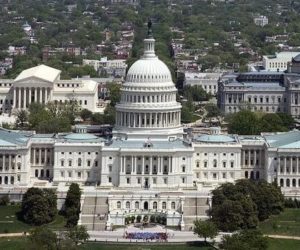Midnight and the close of the 2012 legislative session were around the corner (10:02 pm) when the Georgia Senate passed HB 875 on a 48-2 vote. The bill that the Senate voted on was substantially different from the version it passed less than 12 hours earlier; however, the Senator didn’t share that bit of information with his peers. By the time the House rejected the bill, only an hour later, word of the deceit had bypassed circumvented the mute Republican leadership via the magic of zeros-and-ones.
Has old school political machination met its match with digital networking?
According to Tom Baxter, the bill was initially designed “to prevent the release of the personal information people give to obtain hunting and fishing licenses.”
A good ol’ boy bill, in other words.
What Sen. John Bulloch (R) did not tell his colleagues when he brought the bill up for final vote: the bill had been seriously revised by the conference committee, a rewrite expansive enough to slide an 18-wheeler through, sideways. The new bill would have given the state ethics commission the authority (1) to seal the records of some cases involving politicians, effectively hiding them from the public, and (2) to waive late fees for politicians and lobbyists who don’t meet state reporting requirements.
When the modified bill came up for a vote on the House side, Rep. David Knight (R), like Bulloch in the Senate, kept his lips sealed with regard to the changes. Reportedly, he also refused to take questions from his peers.
The re-written bill met a crushing the defeat, 143-25 (11:08 pm).
What happened in the hour between Senate passage and the House vote?
Within minutes of the Senate vote, The Atlanta Journal-Constitution had posted what happened on Twitter and Facebook; good-government lobbyists in the hall figured out what was going on; political bloggers picked up on it.
What was happening, pretty much in real time with the vote, was the spreading awareness across the House floor of Twitter dispatches by the AJC’s James Salzer and Peach Pundit’s Charlie Harper (and perhaps others I’m not aware of). The measure had been put in the internet sunshine, and the reaction was very speedy.
What I could find to document those two claims:
- Peach Pundit (2,389 followers) has one tweet that was shared twice; it contained a link to what Harper had written about the vote, which has lots of comments. Harper’s timeline shows no tweets about HB 875.
- According to Twitter, Salzer’s (203 followers) tweet was not shared.
- Nothing I can find on the AJC Facebook page.
- Jim Galloway (6,544 followers), another AJC journalist, filed an alert on Twitter that was shared four times.
- Thomas Adams shared a not-recorded-by-Twitter retweet of PeachPundit.
There was other opposition that AJC and Baxter did not mention: Debbie Dooley, a coordinator for the Georgia Tea Party Patriots, “frantically” lobbied against the bill.
I think it’s pretty safe to say that had there not been a heads-up in the digital information space that the bill could well have sailed through the House as easily as it did through the Senate. Would there have been enough post-session grief for the governor to decline his signature? Who knows.
What a despicable way to get to sine die:
- First, “[t]he chairman of the ethics commission, Kevin Abernethy, said he was never consulted on the bill.”
- Second, neither legislative leader told his peers about the substantive changes in a very minor bill.
- Third, the bill languished for a month after being passed by the House, and then the Senate voted on it twice the last day of the session!
Chalk one up for the good guys, and, perhaps, another one for social. And let’s not forget the political reporters on the scene, reporting the news that needed to be shared.
Who were the architects of the re-write?
On the Senate side, Don Balfour (R-Snellville, elected 1992), the chairman of the Senate Rules Committee, and Rules Committee members John Bulloch (R-Ochlocknee, elected in 2002) and Jeff Mullis (R-Chickamauga, elected in 2000).
On the House side, Joe Wilkinson (R-Sandy Springs, elected in 2000), the House Ethics Committee Chairman, as well as David Knight (R-Griffin, elected in 2005) and Tom McCall (R-Elberton, elected in 1994).
One possible catalyst for this move: Balfour is the subject of an ethics complaint filed earlier in March. Another:
[S]ome legislators are going years without filing required disclosure forms; they also aren’t paying the required fines, because the state ethics commission lacks the resources and gumption to take action. As a result, the only remaining incentive to encourage legislators to file disclosure by the legal deadline is public exposure if they do not.
If you’re wondering about the rationale, here it is, via AP:
Rep. Joe Wilkinson, chair of the House Ethics Committee, sat on the panel that changed the bill. He said the proposal was reasonable because it protects politicians from being disparaged by unfounded or politically motivated complaints. He said public officials should not necessarily be fined for innocent mistakes, like missing a report deadline because of the commission’s online filing system will not work.
Cross-posted from WiredPen; follow me on Twitter!
Known for gnawing at complex questions like a terrier with a bone. Digital evangelist, writer, teacher. Transplanted Southerner; teach newbies to ride motorcycles. @kegill (Twitter and Mastodon.social); wiredpen.com
















